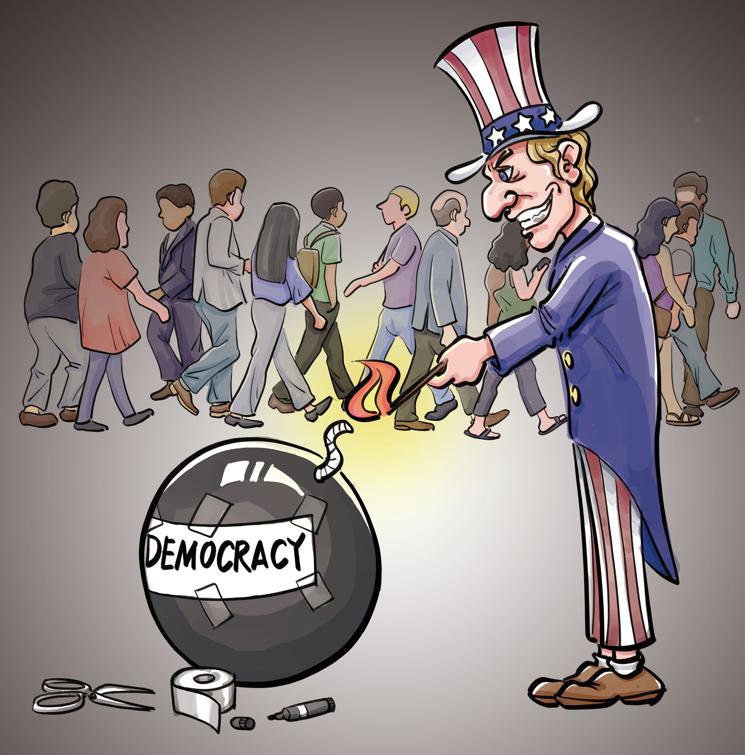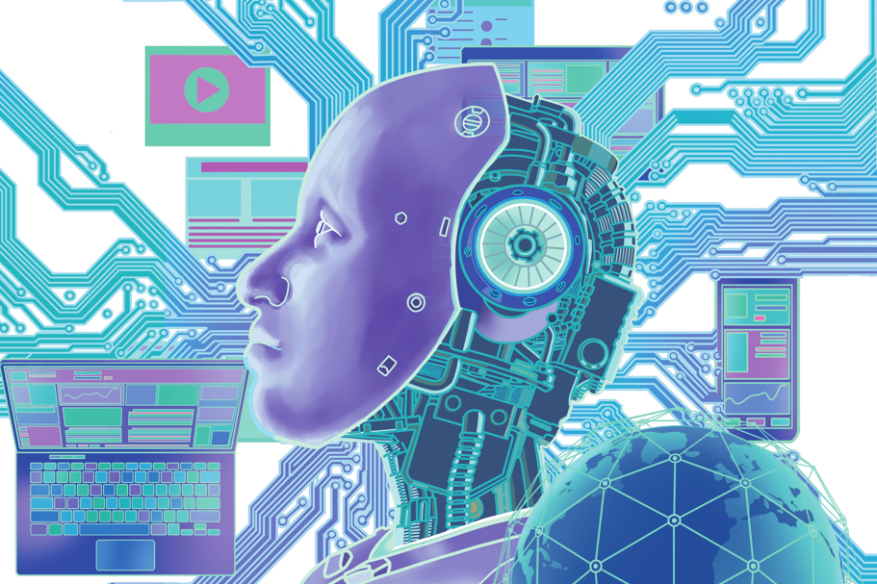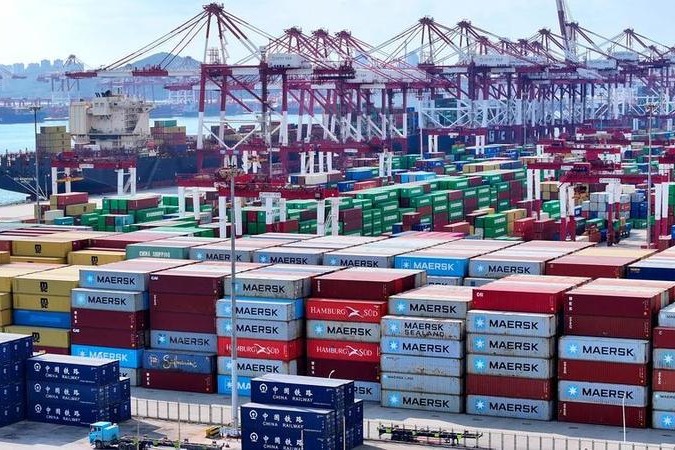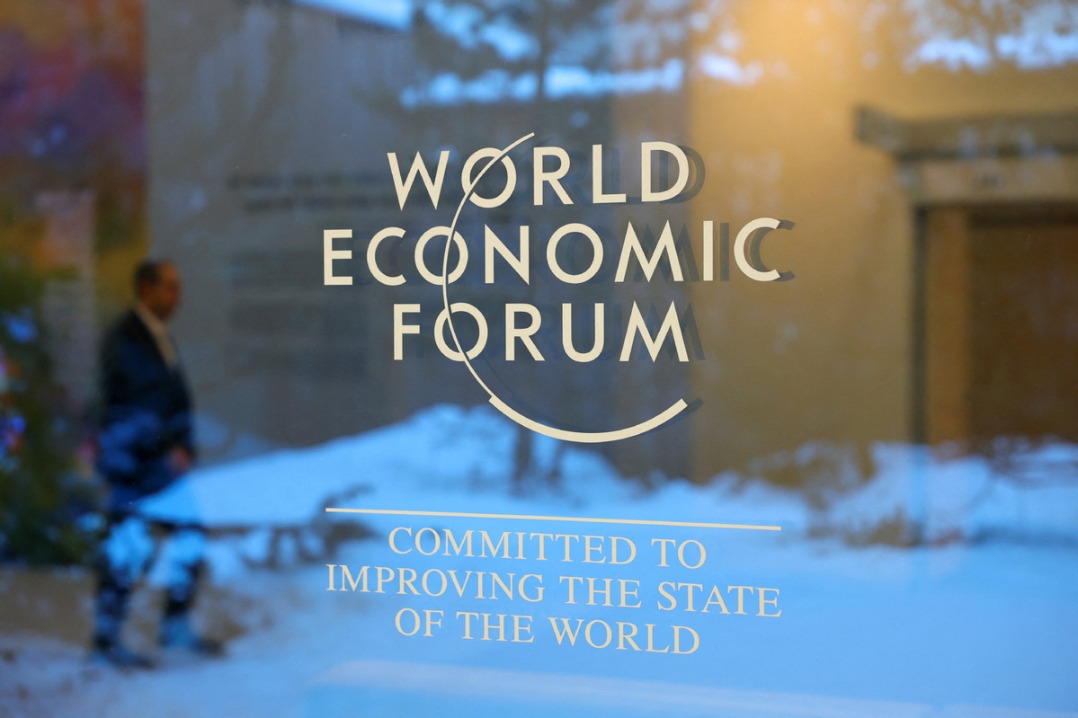Nothing but clique bait
So-called Summit for Democracy is an invitation for the invitees to draw an ideological line of confrontation


The Summit for Democracy on Thursday and Friday, convened by US President Joe Biden, has drawn worldwide attention. With many asking not only what it is, but why it is being held? What for?
Washington claims that the summit will focus on three key themes-defending against authoritarianism, addressing and fighting corruption and promoting respect for human rights with like-minded partners. The list of participants released on Nov 23 revealed that as well as 110 countries, China's Taiwan has been invited to take part, but countries such as China, Russia, Hungary and Turkey are excluded. It is evident therefore that the summit is to be used as a platform for uniting the participants against China and Russia and other countries Washington dislikes.
There are plenty of reasons to worry that the summit will cement an ideological line for a new Cold War at a time when the world is still reeling from the effects of the COVID-19 pandemic.
All countries need to work together to meet the grave common challenges that threaten the security and well-being of the mankind. Instead, by holding the summit, the United States is openly instigating division and confrontation.
The so-called human rights diplomacy is nothing new but an old geopolitical tool in Washington's foreign policy toolbox. History shows that it has brought political turmoil, social disorder and humanitarian crisis to numerous countries and regions. During the Cold War era the bipolar rivalry between the US and the Soviet Union divided the world ideologically for more than 40 years. The scars left unhealed from that era can still be felt today in some countries and regions.
Yet while holding high the banner of democracy, the democratic model of the US itself is failing. The country is politically polarized to such an extent that its political system is nearly paralyzed. Long-simmering issues such as racism, inequality, gun proliferation and social divisions and conflict have worsened.
The US Capitol insurrection in January further broke the myth of US-style democracy. Dark money talks louder than ever in US politics. Political spending in the 2020 election totaled $14.4 billion, which made it the most expensive of all time by a large margin, more than doubling the total of the previous record-breaking spending during the 2016 presidential election cycle. In his article titled Rotten to the Core? in Foreign Affairs magazine, Francis Fukuyama, a US political scientist and political economist, pointed out that the US government is still controlled by powerful elite groups, which distort policies according to their interests and undermine the legitimacy of the whole system.
In terms of combating the novel coronavirus, the response and performance of the US government have been a spectacular and tragic failure. When the pandemic broke out, the Donald Trump administration constantly ignored the warnings and adopted a "federal authority hands-off" approach and sat watching as the crisis catastrophically spread to every state. Even under the Joe Biden administration, which is more attuned to the seriousness of the crisis, the situation is still severe. According to the daily COVID-19 data compiled by Johns Hopkins University, as of Nov 29, there were more than 48.4 million confirmed cases in the US, among which more than 778,000 people had died.
The pandemic crisis has further worsened the existing social problems in the country such as inequality and racial discrimination. The gap between the rich and the poor has widened to the highest point since the Great Depression of the 1920s and 1930s. The wealth of US billionaires has surged by 70 percent, or $2.1 trillion, during the pandemic. They are now worth a combined $5 trillion while ordinary families have been devastated by the crisis. As of the first quarter of 2021, 10 percent of the richest people in the US held 69.98 percent of total net worth while the bottom 50 percent of US residents only held 2 percent. The situation of minority groups is particularly worrisome, as the infection and mortality rate among them has been disproportionately high.
Actually, in recent years, US democracy has clearly been sick, and its image as the poster child for democracy has been irrevocably tarnished. According to the Spring 2021 Global Attitudes Survey released on Nov 2 by Pew Research Center, today few people have a positive view of US democracy.
In the survey, 188,850 adults in 17 advanced economies, including the US, were asked about their views of US democracy. Outside the US, only 17 percent of the respondents said US democracy set a good example for other countries to follow, while 57 percent said US democracy "used to be a good example, but has not been in recent years". An additional 23 percent said the US has never been a good example for democracy. In the US too, respondents also held negative views. Only 19 percent said the US provided a good example of democracy, while 72 percent said their country "used to be a good example" of a democracy for the world, but "has not been in recent years". Another report titled Global State of Democracy 2021 released by the International Institute for Democracy and Electoral Assistance on Nov 22 listed the US as one of the "democratic backsliding" countries.
It is too simplistic and unhelpful to divide the world into black and white ideologically. Democracy and human rights are common values shared by all humanity not a patent of a single country or any group. Every country has the right to pursue its own democratic development that suits its national conditions. Today's world needs peace and development, and cooperation and unity, not division and confrontation. Going back to the old ideological politics of the Cold War is not conducive to overcoming the many challenges the world faces today.
The author is a research associate of the National Institute of International Strategy at the Chinese Academy of Social Sciences. The author contributed this article to China Watch, a think tank powered by China Daily.
The views do not necessarily reflect those of China Daily.
Contact the editor at editor@chinawatch.cn


































